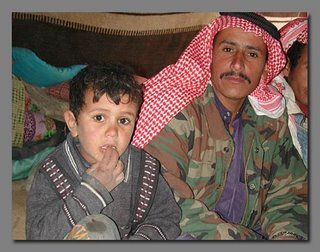

Destination: JORDAN
As Lila is in Jordan I thought I'd do a little research about this country. Perhaps it is
not a top tourist destination, but as I did
a little research I came to the conclusion it
could very well be, if only the Middle East
didn't have the reputation of well...let's say not being exactly "peacefull". Many times I have been told that Jordanian people are very hospitable and once again that was confirmed by Lila the other day. In her words: "people here are very nice!" So she's having a nice time there and that makes me happy.
Thank you Jordan! ; ) شكرا
I could find the following information on Jordan, but I don't know 100%
if it's al true so if I'm wrong feel free to correct me.
People:
98% Arab (60% Palestinian, many refugees), Circassians, Chechens, Armenians, Bedouins.Religion:
92% Sunni Muslim, 4% Shiite Muslim, 4% Christian.History of the region:Pre 20th Century History
Until the early 20th century, Jordan was part of Palestine, of which a part is now the State of Israel. The area is home to one of the oldest civilisations in the world - archaelogical finds from the west bank of the Jordan River have been dated at around 9000 BC. From 3000 BC the area was inhabited by the Canaanites and Amorites, and after them the armies of Sargon, king of Sumer and Akkad. Around 1800 BC Abraham led a group of nomads from Mesopotamia and settled in the mountains of Canaan (which roughly corresponds to present-day Israel). By 1023 BC the Israelites had formed a kingdom, led by Saul and then David, who captured Jerusalem and made it his capital. The unstoppable Roman Empire took Israel in 63 BC and placed it under the control of a series of consuls, including Herod the Great and Pontius Pilate. It was at this time that Jesus lived and preached in the area. The increasing insanity of the Empire under Caligula prompted a series of Jewish uprisings, which lasted for years but were finally crushed when Jerusalem was razed and the province of Palestine decreed. This defeat marked the end of the Jewish state and the beginning of the Diaspora, the scattering of the Jewish people.In 331 AD Emperor Constantine became a Christian and gave his official stamp of approval to the previously illegal religion. Suddenly everyone wanted to know about the Holy Land, and a rash of buildings, including the churches of the Holy Sepulchre and the Nativity, sprang up all over Palestine to mark sites of religious importance. But Christianity's hold over the country was not to last long - in 638 AD Jerusalem fell to Caliph Omar and was declared a Holy City of Islam, on the grounds that the Prophet Mohammed had ascended to heaven from atop the Temple Mount. Christians around the world raised their hackles at this desecration, and by 1099 they'd scrounged together a crusading army and occupied Jerusalem, murdering everyone they could get their hands on and beginning nearly 100 years of Christian rule. But by 1187 the Muslims again had the upper hand - after decades of Christian/Muslim scuffling, the Islamic Mamluks knocked over the last Crusader stronghold in 1291.
The next 500 years were some of the quietest Palestine has seen. Empires rose and fell, and control of the country changed hands with monotonous regularity, eventually coming to rest in the hands of the Ottoman Empire. Much of desert Jordan sidestepped all this change and remained a Bedouin stronghold.Modern History
When the Ottoman Empire collapsed after WWI, Britain took control of Palestine and created the state of Transjordan, under the rule of King Abdullah.
In 1948 Israeli Arabs and Jews went to war with one another. While everyone was distracted, Transjordan snapped up the West Bank and part of Jerusalem, then renamed itself Jordan. In 1953 King Hussein took the throne and Jordan entered a boom period, with a rise in tourism and plenty of aid flowing in from the USA. The Six Day War of 1967 put paid to Jordan's burgeoning tourist industry when Israel retook the West Bank and half of that huge drawcard, Jerusalem. In six days Jordan lost its money spinner and its agricultural land, and replaced them with a few thousand refugees as Palestinians streamed in from the Occupied Territories. By the 1970s, the PLO component of the refugee population was threatening King Hussein's power, and a bloody internal war began, ending when most of the radicals moved to Lebanon.
In 1994 Jordan and Israel signed a peace treaty, agreeing to drop economic barriers and cooperate on security and water. This has raised concerns among Palestinians that they will be eased out of the region, as Israel and Jordan divide the spoils between themselves. At the same time, Jordan has been increasing its links with Yasser Arafat's Palestine National Authority and working toward agreements with them. In recent years Jordan has also restored relations - cut during the 1991 Gulf War - with Kuwait and Saudi Arabia. King Hussein had begun moving the country towards democracy; the Islamic Action Front (with its links to the Muslim Brotherhood and fairly fundamentalist policies) has been the most successful party so far, but his death in February 1999 has left the future uncertain. King Hussein had named his eldest son, King Abdullah II, successor to the throne just weeks before dying, although the Constitution stipulates that both parents of the king must be Arab and Muslim by birth (Abdullah's mother was a British citizen who embraced Islam prior to marrying King Hussein).
Recent History
King Abdullah, the sort of monarch who enjoys dressing up as a taxi driver and talking with his subjects incognito, has the growing support of the international community as well as most Jordanians, including the large and influential Palestinian community. Under his reign, Jordan has moved closer to Israel with a 2002 deal to pipe water from the Red Sea to the shrinking Dead Sea at a cost of 800000000, and a 2004 deal to develop a desert science centre on their mutual border. At the same time, ties with Egypt and Syria have been strengthened.
The first independent elections in 2003 saw a majority of seats go to independent royalist candidates. There were signs, however, that Jordan's 'each-way bet' foreign policy was under pressure. In October 2002 a senior US diplomat was assassinated in Amman, and the Jordanian embassy in Baghdad was bombed in August 2003, killing 11 people. The following month the central bank reversed its decision to freeze Hamas bank accounts.Ok that's pretty much as far as we'll go on the modern history of Jordan.It will be interesting to follow the developments of Jordan and the region now that there isa Hamas led government in the Palestinian territories and Kadima has one elections inIsrael and they stated that they want to define once and for all Israels borders by 2010.We'll see what happens. I'm sure what happens in one country of the region affects all theothers as wel. Here are a few more images.
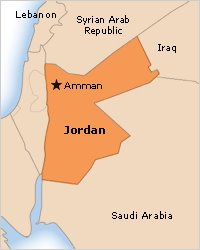 <
<
A Deminer, with a M19 Anti-tank mine
(one of the many left over from the wars).
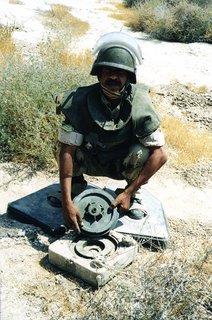
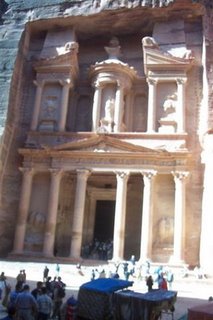
Petra, the ancient and Biblical city.
...and a few more random pictures from Jordan..... ; )
Amman, a Jordanian Bedouin and Aqaba
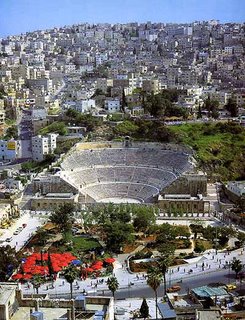
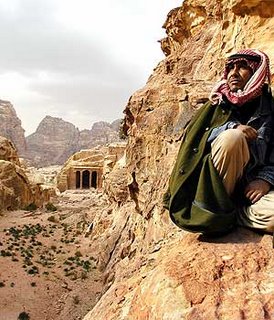
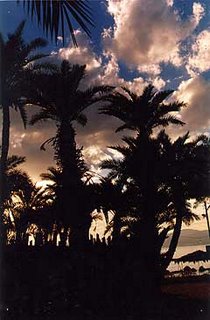
I'll try to visit this country sometime, but first a few other countries... If you get a chance to
visit let me know how you liked it please and you can send me some pictures perhaps.
When Lila gets back I might add a few of hers as she took the digital camera.
Kind greetings from Malta,
~Lucas~












